Netflix Clone Business Model: How to Make Money
Create a powerful, customizable streaming solution with Miracuves’ Netflix Clone, equipped with high-performance features and next-gen technology.
Building a Netflix clone isn’t just about delivering entertainment — it’s about creating a sustainable business that generates steady revenue.
If you’re an entrepreneur or startup founder exploring the Netflix clone business model, it’s crucial to understand how platforms like Netflix make money and how you can adapt those strategies for your own app.
In this guide, we’ll break down the proven revenue models, explore ways to diversify income streams, and help you plan a business approach that keeps both users and investors happy.
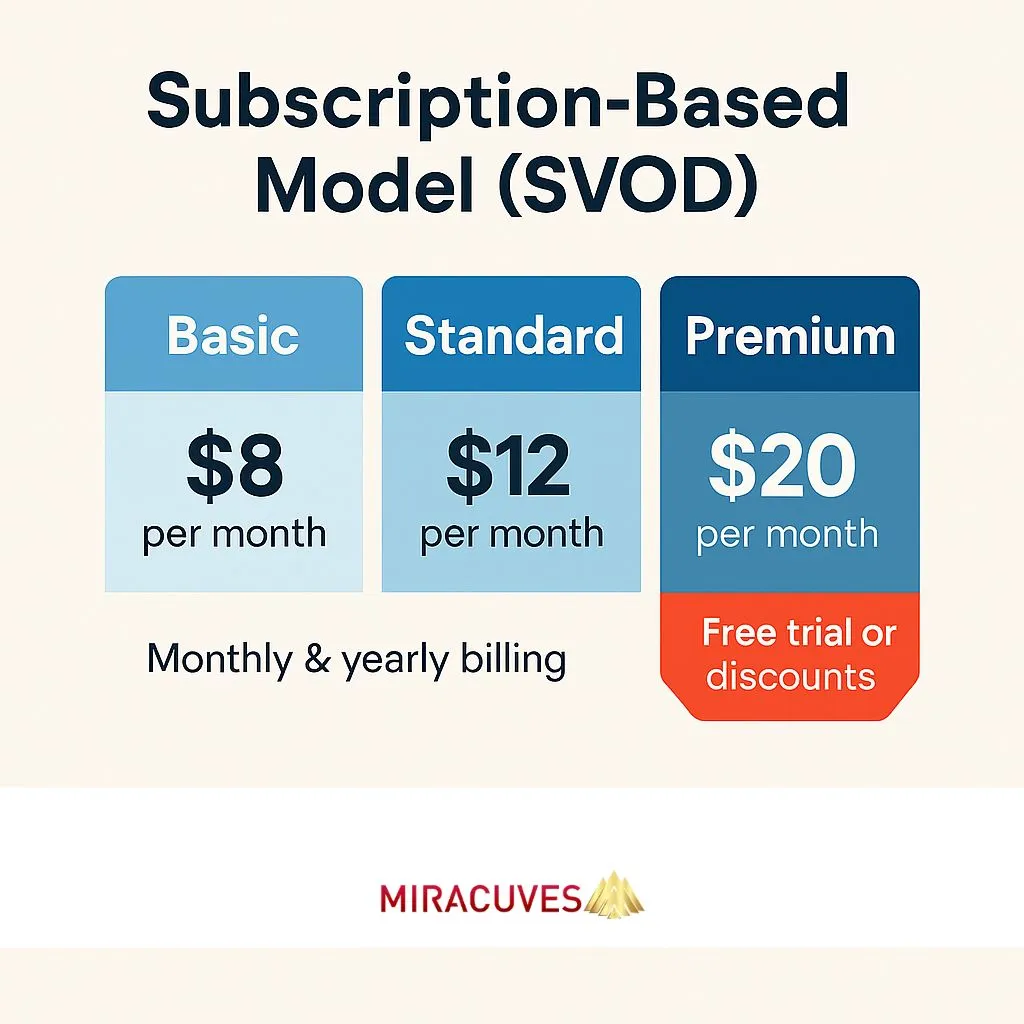
Subscription-Based Model (SVOD)
The subscription video on demand (SVOD) model is the backbone of Netflix’s success — and it’s a natural fit for your Netflix clone.
Here’s how it works:
- Multiple plans → Offer tiered subscription options (for example: Basic, Standard, Premium) with different price points and perks like HD streaming or multi-device access.
- Monthly or yearly billing → Provide flexible billing cycles to appeal to different customer preferences.
- Free trial or discounts → Attract new users with a trial period or launch discounts to reduce sign-up hesitation.
This model ensures predictable, recurring revenue and builds long-term customer relationships.
Ad-Supported Model (AVOD)
If you want to attract a larger audience — especially those unwilling to pay upfront — an ad-supported video on demand (AVOD) model can work wonders.
Here’s what it looks like:
- Free access, funded by ads → Users can watch content for free while you earn revenue from in-app ads.
- Types of ads → Pre-roll (before content), mid-roll (during content), or banner ads on the interface.
- Targeted advertising → Use viewer data to serve relevant ads, improving engagement and increasing ad revenue.
This model works particularly well in emerging markets or niche segments where price sensitivity is high.
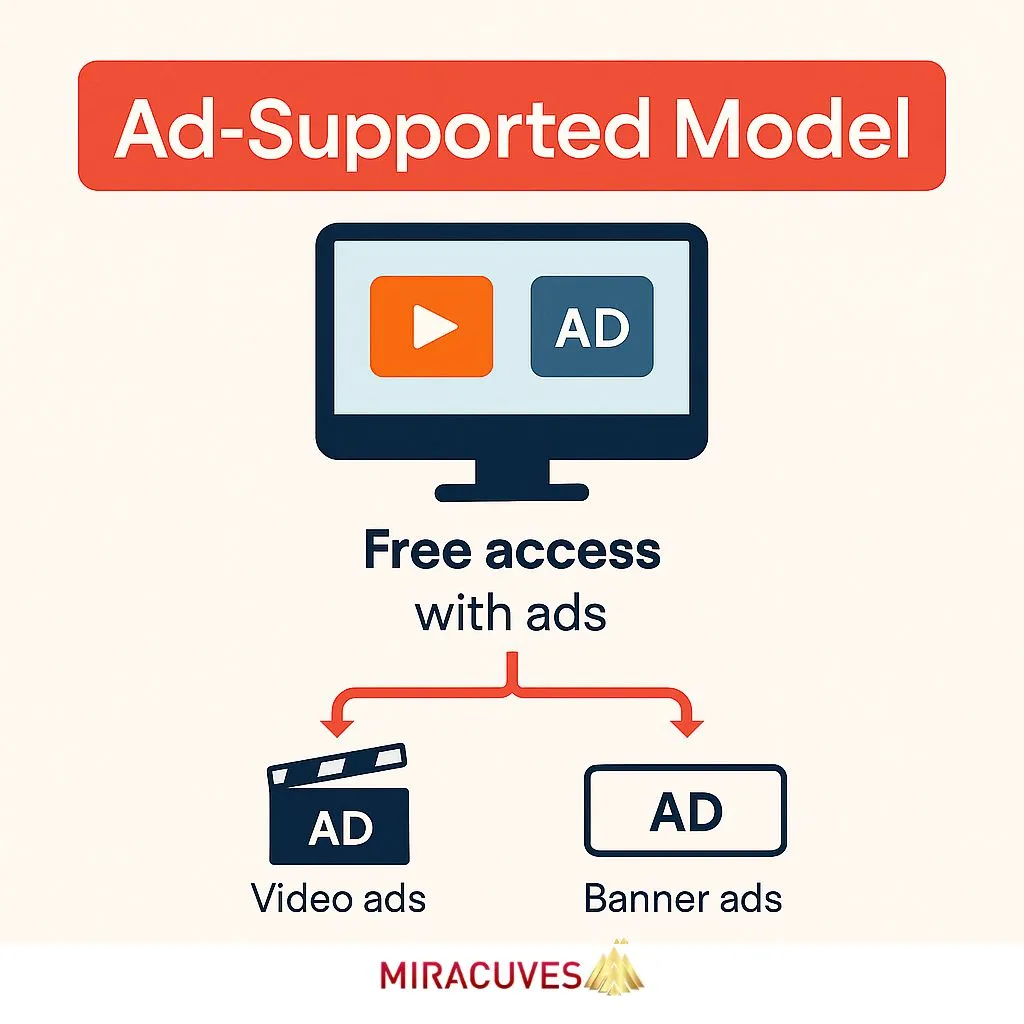
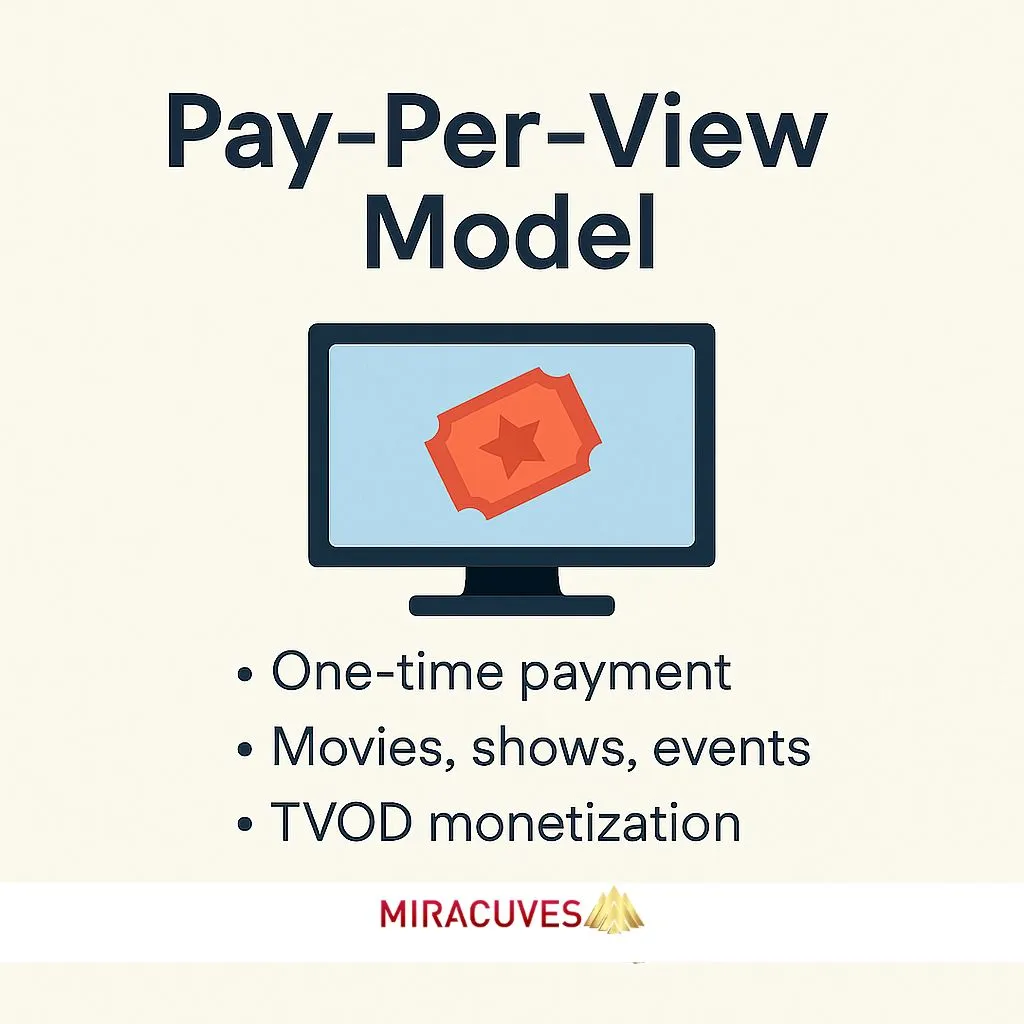
Pay-Per-View Model (TVOD)
The transactional video on demand (TVOD) model offers another revenue stream, especially useful for premium or time-sensitive content.
Here’s how it works:
- One-time purchases or rentals → Users pay per movie, show, or live event.
- Special releases → Great for blockbuster premieres, concerts, sports events, or exclusive documentaries.
- Flexible pricing → Offer different price points depending on content type and exclusivity.
This model can be an excellent add-on to subscriptions or ads, giving you a hybrid business approach.
Hybrid Revenue Model
Many successful streaming platforms combine multiple revenue streams to maximize profits — and your Netflix clone can do the same.
Here’s what a hybrid model might look like:
- Freemium + subscription → Offer a basic ad-supported tier for free users, alongside premium ad-free subscription plans.
- Subscription + pay-per-view → Let subscribers access most content while charging extra for premium or live events.
- Ads + sponsorships → Blend ad revenue with brand sponsorships or partnerships.
This flexibility allows you to target different audience segments and scale revenue over time.
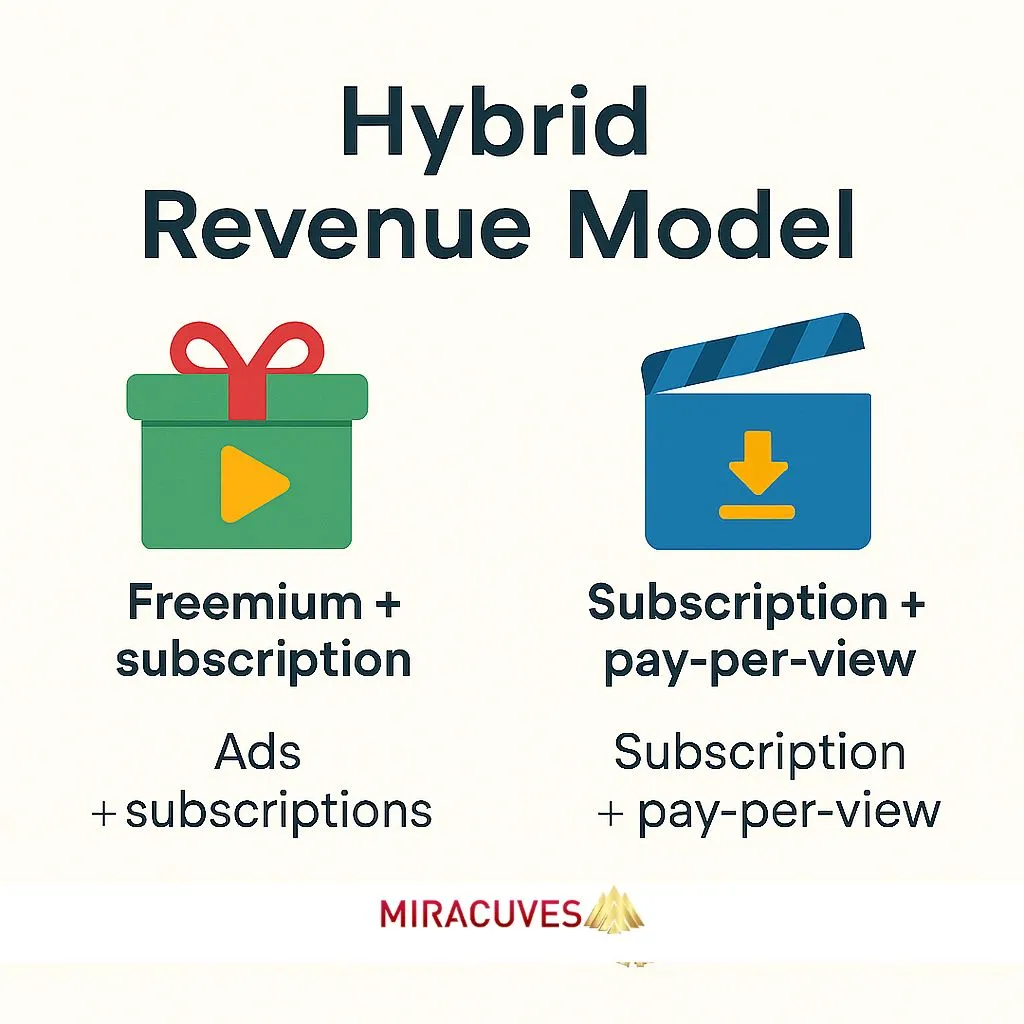
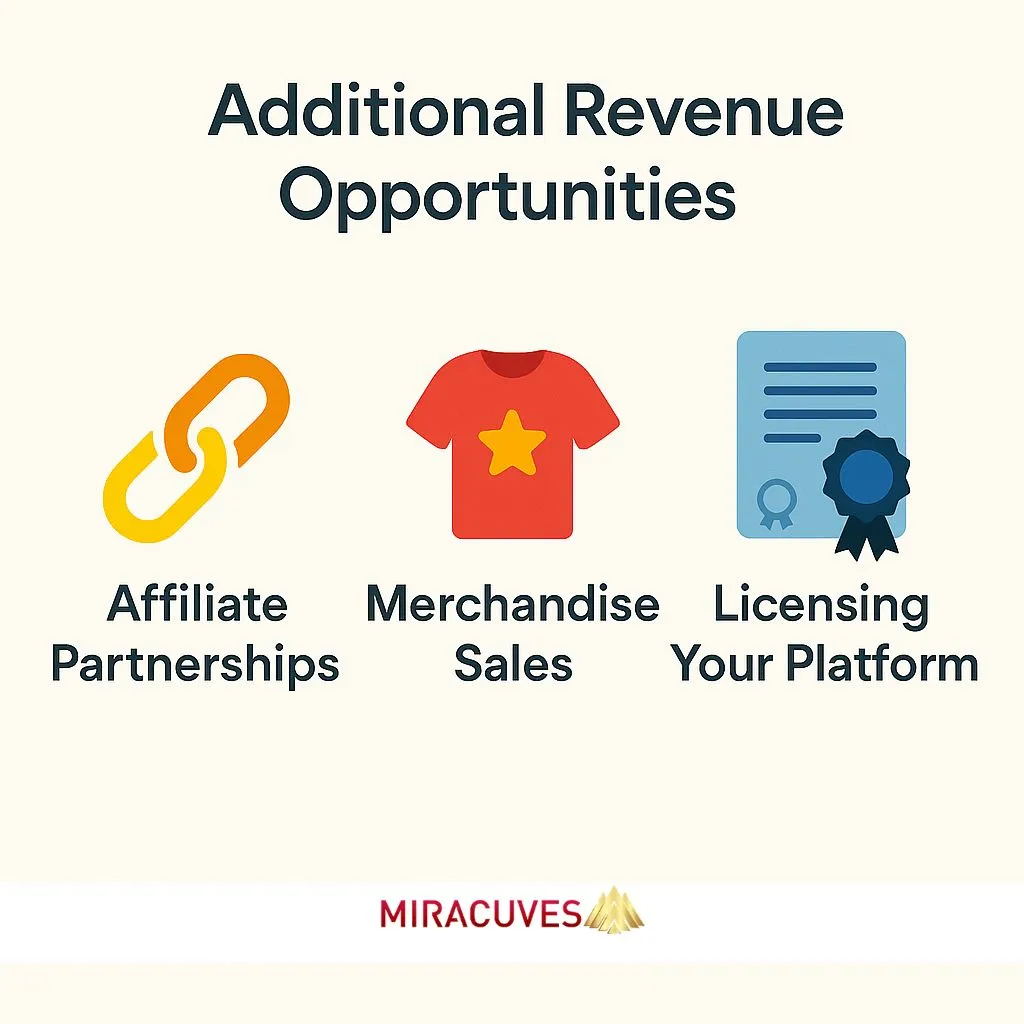
Additional Revenue Opportunities
Beyond the core business models, there are extra ways to boost your platform’s income.
Consider these options:
- Affiliate partnerships → Promote partner products or services inside the app and earn commissions.
- Merchandise sales → Sell branded merchandise related to popular shows or characters.
- Licensing your platform → Offer your streaming technology as a white-label solution to other businesses or content creators.
These add-ons can help diversify your income and strengthen your brand presence.
Choose the Right Development Partner
Even with a solid plan, building a successful OTT platform is no small task — you need a team that knows the terrain. Partnering with the best Netflix clone development company can save you time, money, and a lot of headaches.
Look for a partner that offers:
- Proven experience in video streaming app development
- A clear portfolio of successful projects
- End-to-end support, from planning to post-launch optimization
At Miracuves, we specialize in delivering high-quality app clone solutions tailored to your business needs — so you can focus on growth, not just development.
Conclusion
A well-designed Netflix clone business model goes beyond subscriptions — it’s about building a balanced, flexible strategy that taps into multiple revenue streams. Whether you focus on subscriptions, ads, pay-per-view, or a hybrid approach, the key is to align your monetization plan with your audience and content offering.
Want to explore marketing strategy or developer guide for your Netflix clone? Check out our related articles to plan your journey with confidence.
Frequently Asked Questions
The subscription-based (SVOD) model is the most common and proven, offering predictable monthly or yearly revenue.
Yes — many platforms use a hybrid approach, blending subscriptions, ads, and pay-per-view options to maximize earnings.
The app offers free content to users and earns revenue by displaying targeted ads from advertisers and sponsors.
Pay-per-view works best for exclusive, premium, or live content like sports events, concerts, or blockbuster releases.
Yes — you can explore affiliate partnerships, merchandise sales, or even license your streaming platform as a white-label solution.



